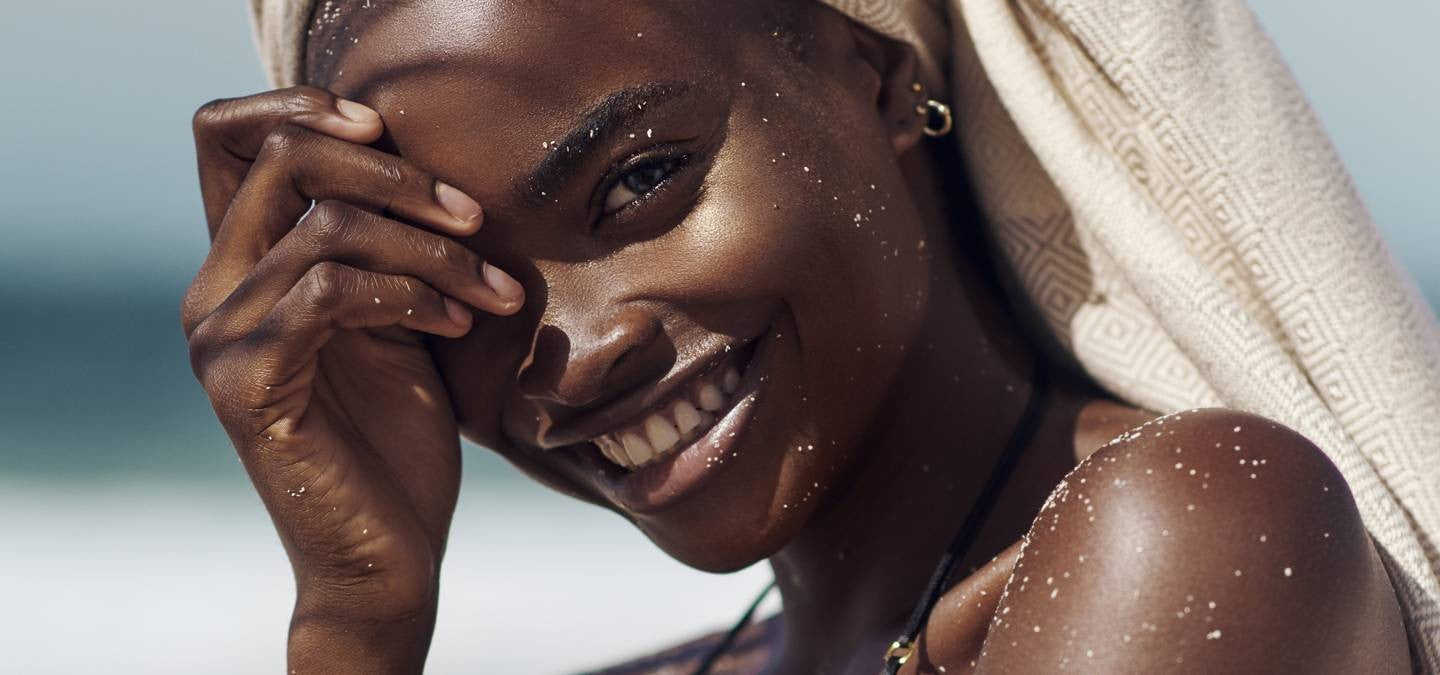
Should Black People Use Sunscreen
Wondering what's the buzz about sunscreen, nowadays? Heck, our parents didn't use sunscreens and nothing really happened to them. As hilarious as it may sound, at Reine Africaine, we've been wondering the same. What's all the buzz about? So, we decided to dig a little deeper and what we found was a shocker. Here it is, sunscreen is worth all the hype!
As a brand, we are all about empowering black people to make the best choice for their skin health. It's no surprise to discover that a lot of black people do not use sunscreen or consider it to be cosmetic excesses with the line of 'black don't crack'. They believe the melanin in their skin - which creates the pigmentation - would protect them from the sun.
But, here's the fact, everyone needs sunscreen regardless of their skin color. When you neglect sunscreen, you risk more than just a sunburn, ever heard of skin cancer? Although skin cancer is less common in black people, still they can develop skin cancer.
With your skin health in mind, we've curated a list of five must-know facts about sunscreen that should prompt you to grab on every sunscreen on the shelf.
1. Ultraviolet rays
Sunlight is the number one source of ultraviolet rays. Sunscreens protect from two types of harmful ultraviolet rays which are UVA and UVB. UVB rays, which do not penetrate as deeply as UVA, cause sunburn and play the biggest role in skin cancer. UVA due to their deeper penetration leads to premature aging and wrinkling of the skin as well as skin cancer.
2. SPF (Sun Protection Factor)
This is the scientific measure of how long a sunscreen would protect you from UVB rays. The higher the SPF number, the higher the amount of protection you'll get from the sunscreen. A broad-spectrum SPF is used to indicate that a sunscreen protects from both UVA and UVB rays.
3. Weather Conditions
It is advised to wear sunscreen everyday irrespective of the weather condition. Whether it's rainy, cloudy, or partially sunny, it doesn't matter. Experts reveal that while clouds can block sunshine, they can't block ultraviolet rays, and that's what you need protection from.
4. Application
There's definitely a right way to apply sunscreen in order to get maximum results. Dermatologists recommend applying about roughly 6tsp to cover the body of an average adult. It should be applied every morning and reapplied every two hours, regardless of the SPF.
5. Sunscreen is safe to use
As funny as it may sound, a lot of people think sunscreens are formulated with dangerous chemicals that can cause cancer. Well, we are here to allay your fears. Healthcare professionals strongly advise the use of sunscreen and validate that it is very safe for use. Although, it should not be used on babies less than 6 months.
So, should black people wear sunscreen? The answer is a definite, Yes!
The benefits of applying sunscreen are enormous, from preventing hyperpigmentation and premature aging to decreasing the risk of skin cancer.
Our forefathers may not have needed sunscreen as much as we do now because the ozone layer wasn't as depleted.
Here are three sunscreens from African brands.
1. Skin Science Africa

This sunscreen from Skinscience Africa is a sunscreen with SPF 50 which blocks 98% of UVB radiation. We love it because it leaves no white cast.
2. NB Skinscience

This sunscreen with SPF 30 from NB skinscience, a South African skincare brand is non-oily and suitable for all skin types. It is also broad-spectrum, meaning it protects you from both UVA and UVB. We love it because it's Paraben-free. Paraben are chemical preservatives that can cause skin irritations and hormonal imbalances.
3. Arami Essentials

Ultra shade by Arami Essentials is a broad-spectrum sunscreen with SPF 50. We love it because it's non-greasy and provides lightweight moisture to prevent dry and rough patches.
At Reine Africaine, we believe with climate change and global warming on the rise, black people should let go of the belief that sunscreen isn't meant for their skin tone but should rather protect themselves by making sunscreen application a daily habit.
